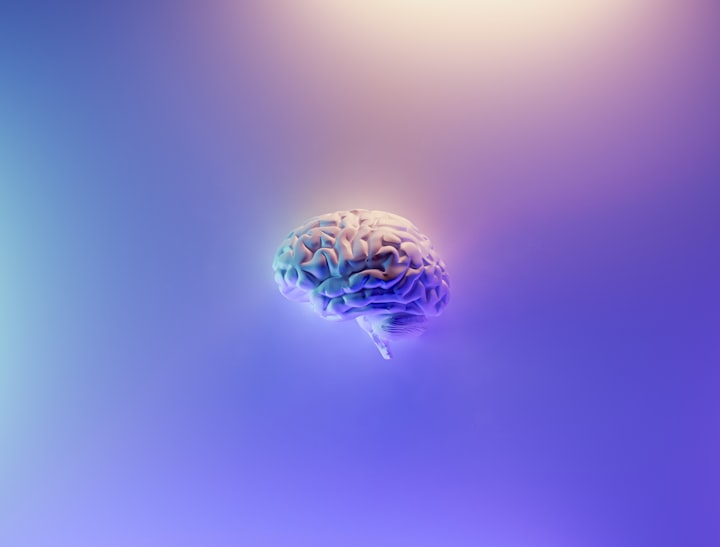The Amygdala and Mental Health
How it affects PTSD, anxiety & depression

So, what is all the hype? What is amygdala???
How it affects our mental health??
Let's see what amygdala is and how it affects each part of your brain..
The amygdala is a small almond-shaped structure located in the brain that plays a key role in processing emotions, particularly fear and anxiety. It also causes the formation of emotional memories.
The relationship between the amygdala and mental health is complex, but studies have shown that individuals with anxiety and depression tend to have increased activity in the amygdala, which may contribute to the development and maintenance of these disorders. PTSD & other trauma-related conditions also have a relationship with the amygdala.
Anxiety disorders & the Amygdala
The amygdala plays a key role in the processing of fear and anxiety. It is highly active during situations that are perceived as threatening or fearful. This heightened activity can lead to increased feelings of fear and anxiety.
Studies have shown that individuals with anxiety disorders tend to have increased activity in the amygdala, which may be related to heightened feelings of fear and worry. This increased activity may contribute to the development and maintenance of anxiety disorders.
Understanding the amygdala's role in anxiety disorders can inform treatment by developing interventions aimed at reducing amygdala activity, such as mindfulness and meditation practices, and certain medications like antidepressants.
Depression & the amygdala
The amygdala is also thought to play a role in the development of depression. It may be involved in the regulation of emotional responses and the processing of negative emotions.
Studies have found that individuals with depression tend to have increased activity in the amygdala, which may be related to the increased severity of symptoms such as sadness and hopelessness.
Understanding the amygdala's role in depression can inform treatment by developing interventions aimed at reducing amygdala activity, such as mindfulness and meditation practices, and certain medications like antidepressants.
Post-traumatic stress disorder (PTSD) & the amygdala
The amygdala plays a key role in the development of PTSD. It is thought to be involved in the formation of emotional memories and the processing of traumatic events.
Studies have found that individuals with PTSD tend to have increased activity in the amygdala, which may be related to the development of symptoms such as flashbacks, nightmares, and avoidance behaviors.
Understanding the amygdala's role in PTSD can inform treatment by developing interventions aimed at reducing amygdala activity, such as cognitive-behavioral therapy and certain medications like antidepressants.
Mindfulness & meditation practices
Mindfulness and meditation practices can affect the amygdala by reducing its activity, which may be related to the reduction of symptoms of anxiety and depression.
Research has shown that mindfulness and meditation practices can be effective in reducing the severity of symptoms, such as worry and fear, and can improve overall well-being.
Mindfulness and meditation practices can be incorporated into treatment for anxiety, depression, and PTSD as complementary therapies.
Medications & the amygdala
Certain medications, such as antidepressants, can affect the amygdala by reducing its activity, which may be related to the reduction of symptoms of anxiety and depression.
Research has shown that antidepressants can be effective in reducing symptoms of anxiety and depression, which may be related to the reduction of amygdala activity.
Medications can be used as a treatment for anxiety, depression, and PTSD, but it's important to note that it should be used in combination with other therapies.
Conclusion
The relationship between the amygdala and mental health is complex, but research has provided important insights into the role of this structure in various psychiatric conditions.
More research is needed to fully understand the role of the amygdala in mental health and to develop effective treatments for individuals with anxiety.
It is important to note that the relationship between the amygdala and mental health is complex, and a multi-disciplinary approach to treatment is essential. This may include a combination of therapies such as cognitive-behavioral therapy, mindfulness and meditation practices, and medication.
Additionally, it's important to note that while interventions aimed at reducing amygdala activity may be effective in improving symptoms, they should not be considered as the only treatment. A holistic approach to treatment, including addressing underlying issues such as trauma and addressing social determinants of health, is important for addressing mental health conditions and improving overall well-being.






Comments
There are no comments for this story
Be the first to respond and start the conversation.